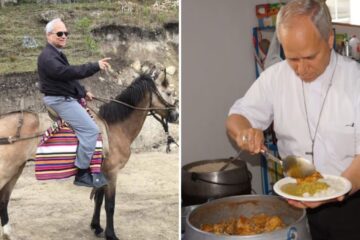
El Salvador’s Constitutional Court declared unconstitutional a 1993 amnesty law shielding war crimes committed in the country’s bloody civil conflict from prosecution.
The decision paves the way for justice for crimes against humanity committed by the military and guerrillas in the country’s 12-year civil war that claimed 75,000 lives before ending in 1992, reports the Associated Press.
The court found that the law prevented justice for crimes against humanity, which do not prescribe, explains La Prensa Gráfica.
The case has been before the court for over three years. Judges found that the law violated constitutionally guaranteed human rights and international human rights conventions subscribed to by El Salvador, notes El Faro.
«Amnesty is contrary to the right to access justice … and the right to full compensation for victims of crimes against humanity or war crimes that constitute serious violations of international humanitarian law,» the court said in a statement.
The judges emphasized that the crimes in question refer to actions committed by people working under the instruction of higher-ups in military, paramilitary and guerrilla organizations. The judges said that the hierarchical and vertical nature of the armed forces and the guerrilla means the high command of both could be criminally responsible, notes El Faro.
In practise, this means about 30 crimes documented in the «Truth Commission» report compiled after the war can be prosecuted, according to El Diario de Hoy. Cases include numerous massacres of civilians, the assassination of Archbishop Oscar Romero and the killing of six Jesuit priests, reports Reuters.
El Faro points out that the decision means both high army officials and potentially leaders of the FMLN guerrilla, now a political party that governs the country. President Salvador Sánchez Cerén was part of the FMLN national command during the war, and several former guerrillas form part of the government.
The overturned law was passed by a right-wing congress in 1993, explains El Faro, and contradicted a 1992 accord between the government and the FMLN which agreed that grave crimes committed by both sides should be tried.
Yesterday’s ruling noted that the peace accords made no mention of an amnesty, explains El Diario de Hoy. While international treaties permit post-conflict amnesty, that does not mean that the legislature has the right to declare blanket amnesty without contemplating the state’s obligation to protect human rights, investigate and sanction violations and provide reparations for victims.
An earlier 1992 Law of National Reconciliation established that authors of grave crimes of violence committed during the war would not enjoy amnesty, but was overturned by the subsequent 1993 law, according toUnivisión.
A majority of the human rights violations documented by the «Truth Commission» report, 60 percent, were committed by the army, and approximately 5 percent were attributed to the FMLN, according to La Prensa Gráfica. The commission documented over 22,00 reports of rights violations: 60 percent were extrajudicial executions, 25 percent forced disappearances, and more than 20 percent accounts of torture.
It’s an issue that also has relevance for El Salvador’s current problems. The country’s homicide rate is skyhigh TKTKTKTTKT. An Economist piece from January by Sarah Maslin looks at the 1981 El Mozote massacre in El Salvador as an example of how the country’s post civil war amnesty agreements – which shielded violations perpetrators on both sides of the conflict and helped make a political settlement possible – have been increasingly questioned. One expert quoted in the piece makes the case that the country’s sky-high murder rate is linked to impunity for war crimes committed during the bloody 12-year civil war between leftist guerrillas and a right-wing government.
Current defense minister Davíd Munguía Payé called the ruling a «mistake» and warned that it could lead to a witch hunt, according to La Prensa Gráfica.
The decision comes a day before the court is expected to rule on the extradition of several military officers to Spain for the massacre of Jesuit priests, their housekeeper and her daughter in 1989. There are reports that the court is leaning against the extradition, according to El Faro.




